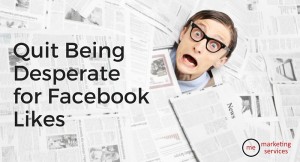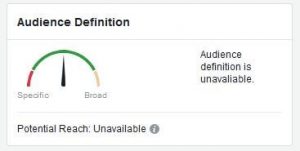— August 9, 2019
I get asked all the time about how best to change jobs, industries, careers, etc.
Upon reflection of my own journey, as well as years of subsequently helping others to do the same, I’d say that for most, the notion of a career change comes when people arrive at a “crossroads” — personally, professionally, or both.
Like many, my own career path was anything but a straight path – which can make career change even more daunting.
My past jobs included roles as a freelance journalist, social worker, admin, communications and training manager, and corporate communications specialist.
My Crossroads Event
My own crossroads came during the 2008 economic downturn. My husband’s income was reduced drastically, his job was at risk and my family expanded (we went for 3 kids and got 4!).
I needed to bring in more income – and was struggling to do so in a way that didn’t mean losing half of my salary on childcare.
While the circumstances that trigger each person’s crossroads may be different, the roadmap to figuring out if career change is right for you is often eerily similar.
My Roadmap to Career Change
Below are the 4 steps that made up my own roadmap to career change, and to my role today as an Executive Resume Writer and Storyteller.
#1 Perform a Skills Inventory (aka “What am I good at?”)
When evaluating my own strengths and weaknesses, I was able to come up with 2 of what I felt were my strongest skills: Writing and Listening.
While creative writing was certainly not my forte, in each of my roles, I’d been praised for my talent for converting the complex thoughts and ideas of others into plain speak on paper or the screen — from an email to a presentation to a newsletter article.
Secondly, earning my Master’s in Social Work helped me to hone my listening skills. I knew I was good at hearing the stories of others, reflecting back what I’d heard, and knowing the right questions to ask to make them look at their situation in a different light.
While I’d written resumes as a favor to friends for years, it wasn’t until I performed a skills inventory that the light bulb went off. Resume writing blended both of these skills!
Now it was time to figure out how to earn some $ $ using these skills.
#2 Identify Your Deal Breakers
Let’s say your goal is to become a world-class chef and to accomplish this you must enroll in a culinary school in Paris or New York. If you are unable to move to either of these two cities, then relocation becomes a deal breaker that will impede your path to this career change.
Back to my own story, in order to achieve my goal of not losing a chunk of my income to childcare, I needed to find a virtual role that offered scheduling flexibility. For me, working in an office on a set schedule was a deal breaker.
Everyone has deal breakers. Figuring out yours will help you determine if your talents can somehow translate into a viable new career option.
#3 Take a Test Drive & Narrow the Gap
While many career changers are daring, others like me are a bit more risk adverse. Rather than diving head first into launching a resume writing business, I decided to take a test drive.
This meant landing a few gigs as a subcontractor with a few established resume companies while continuing to balance my other paid freelance writing work.
During this period, I committed to professional development to narrow my skills gap. I listened to webinars in the grocery store and, while at my children’s practices, enrolled in self-paced online courses and read books.
In the end, I earned two resume writing certifications – which led to an increase in my marketability and an increase in the pay I received.
For others, a test drive might mean keeping their day job while working extra hours on a “side hustle.” It could mean doing volunteer or pro-bono work in your desired field to see if your dream is what you thought it would be (sometimes the grass isn’t always greener!), and if it’s viable.
My test drive lasted about 18 months! Were it not for this period, I wouldn’t have improved my resume writing skills, learned about writing for LinkedIn, and learned to write career marketing collateral for job seekers across all levels and industries.
The test drive gave me the confidence to make things official.
#4 Make it Official
In my case becoming official meant slowly taking on less work with contract companies and making some time and financial investments.
I saved and allocated funds for a new website and carved out time for regular blogging and social media marketing. Today, my writings have been featured in several publications, and my social media followings continue to grow.
Career Pivot Complete
Today as the Chief Storyteller at Virginia Franco Resumes, I work a full-time, flexible schedule and am officially a small business owner. The role is personally fulfilling, pays the bills and I’ve yet to spend a dime on childcare. The best part? I get to help people land roles or work with companies that make them happy.
Previously appeared on Job-Hunt.org
Business & Finance Articles on Business 2 Community
(10)




